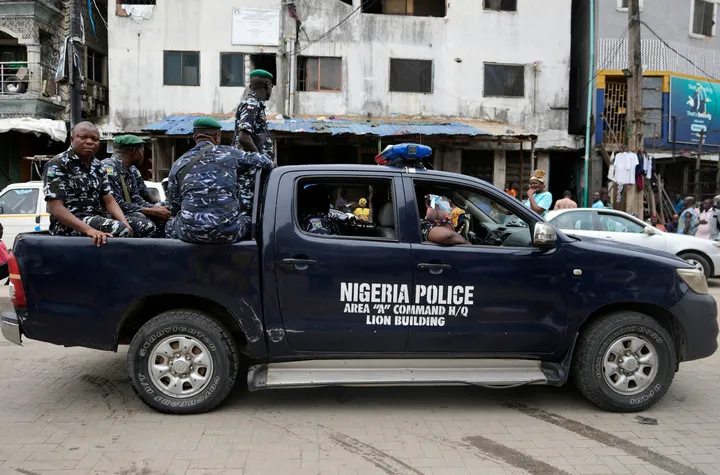When the Ukrainian refugees started arriving at the border with Poland last month, they received a rather warm welcome.
Polish border guards let everyone through - even if some didn’t have proper documents. Chief Polish veterinarian went a step further and issued a special exemption to facilitate Ukrainians who wanted to take their pet dogs and cats along with them.
The response that the Ukrainians received stood in sharp contrast to the treatment meted out to refugees from the Middle East and elsewhere.
READ MORE: Türkiye rescues dozens of asylum seekers pushed back by Greece
Last year, hundreds of migrants from troubled countries such as Iraq, Syria, and Afghanistan were stranded at the border between Belarus and Poland when thousands were trying to reach Western Europe.
Poland posted riot police supplementing its border guards to stop the flow of refugees.
In 2015 and 2016, a large number of refugees mainly from Syria and Iraq arrived at the European shores.
Although Germany took 1 millions of them, the rest of the EU members accepted small numbers and were not willing to take their share of the refugees, Poland and Hungary among them.
Back then hundreds of Poles marched through the streets of Warsaw, the capital, chanting, “today refugees, tomorrow terrorists!”
In a 2016 survey, 73 percent of Poles said they viewed refugees from places like Iraq and Syria as a “threat to their country.”
Around that time, Hungary built a fence along the Serbian border as the number of Syrian migrants increased.
Earlier this year, Poland started construction of a five and a half metre high barbed-wire fence along its border with Belarus, resembling the one built by Hungary.
Many asylum seekers were stuck in the forested region that borders Belarus in sub-zero temperatures without medical assistance.
So what’s behind the sudden change in government policies and public attitude towards Ukrainian refugees?
Solidarity with asylum seekers has changed over time and differs according to their background, said Irene Landini, a political scientist and social researcher working on migrant rights.
“The war in Ukraine is somehow felt emotionally much closer to home. This is probably because of the geographical proximity and the great degree of attention it is receiving in the European and national media,” she said.
READ MORE: Fleeing refugees plead NATO to enforce Ukraine no-fly zone
“Lack of, or insufficient information delivered by the mass media, geographical distances, and a perceived cultural distance make conflicts in the Middle East less relevant in the eyes of the European population and its governments."
Experts say Poland was quick to embrace Ukrainians because this is not the first time it has hosted refugees from its neighbour.
Thousands of Ukrainians fled after Russia annexed Crimea in 2014. Poland and Ukraine also share historical and cultural ties.
The New York Times put the total number of Ukrainian citizens living in Poland before the Russian attack at around one million.
The current crisis in Ukraine has sent thousands of mostly white, predominantly Christian refugees to the border.
That might be one factor contributing to the warm embrace they are receiving from the Poles, said Marta Kindler, a sociologist and research fellow at the University of Warsaw’s Centre of Migration Research.
“It is clear that this [attitude] is, unfortunately [grounded] on a racist and ethnic basis,” she said.
“This is an issue that I think is, right now, really striking.”
Language is another factor that has made it easier for Poland to accept Ukrainian refugees. As of 2020, at least a third of Ukrainians have a basic command of the Polish language, according to one survey.
Hanne Beirens, a director at the Migration Policy Institute Europe, adds that there is also geographical proximity to the current events in Ukraine, which makes people feel personally threatened.
“There are explosions only 70 kilometres away from the Polish border. I think that's also feeding into how people are responding.
“There's also a historical dimension that weighs in into this, which is the memory of the repression suffered by Polish citizens [in the days of the Soviet Union]. That's very much still alive in the collective memory in Poland.
“Hence, there's this kind of sympathy or empathy with what Ukrainians are experiencing at this very moment in time.”
But as Ukrainian refugees continue to receive a welcoming reception at the border, many wonder if the current crisis could one day translate into a dignified treatment for all refugees fleeing war and conflict.
“As the fight for a sovereign, democratic Ukraine brutally continues, and is quite literally and very understandably ‘closer to home’ in Europe and for the EU, important questions about people on the move in the face of war, remain to be answered,” Marta Bivand Erdal, research professor at the Peace Institute Oslo, said.
“These are global questions, ultimately about the legitimacy of international institutions, notably of the UN and of international humanitarian efforts, where it too easily appears as if some human lives are more equal than others.”























